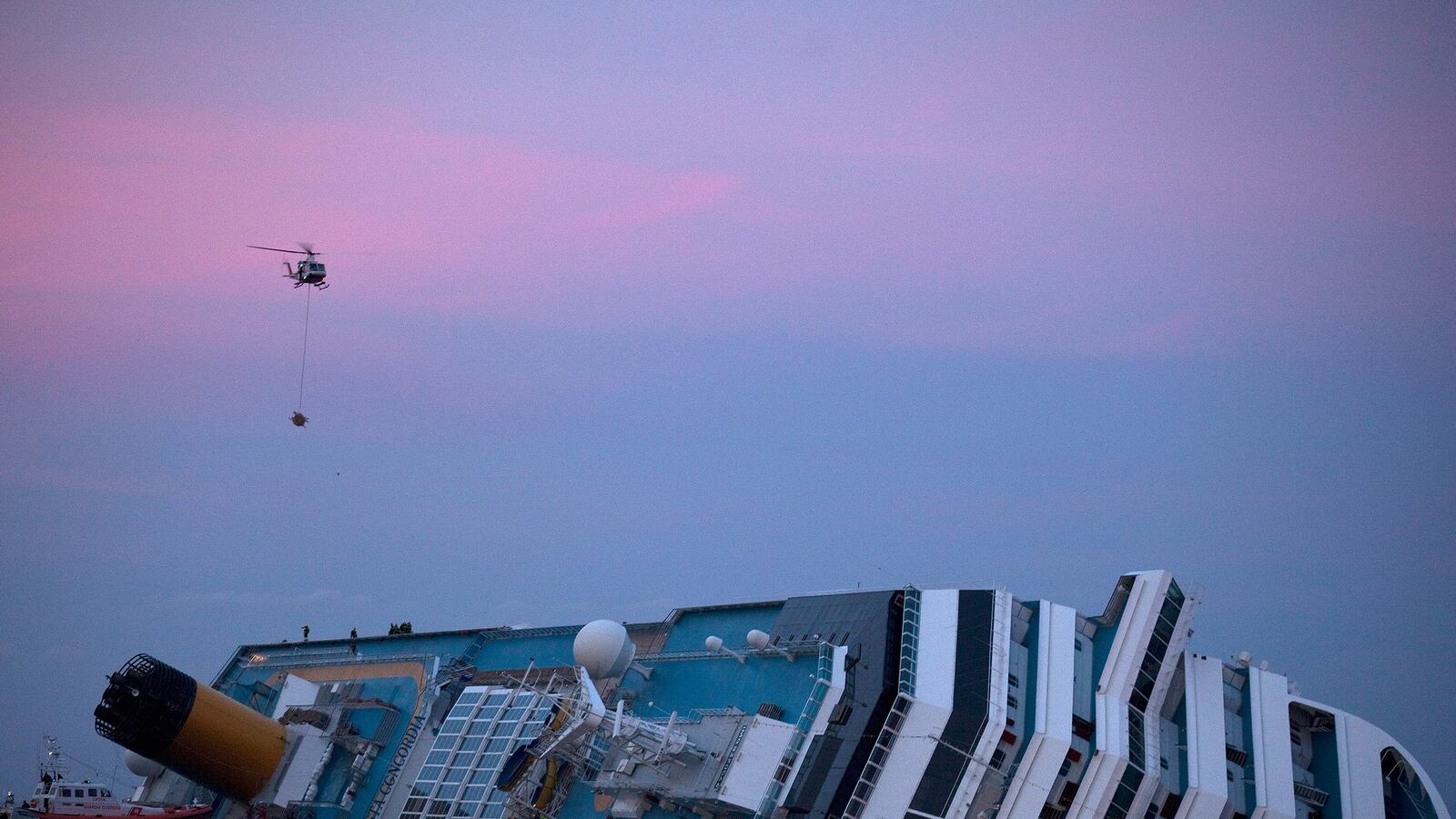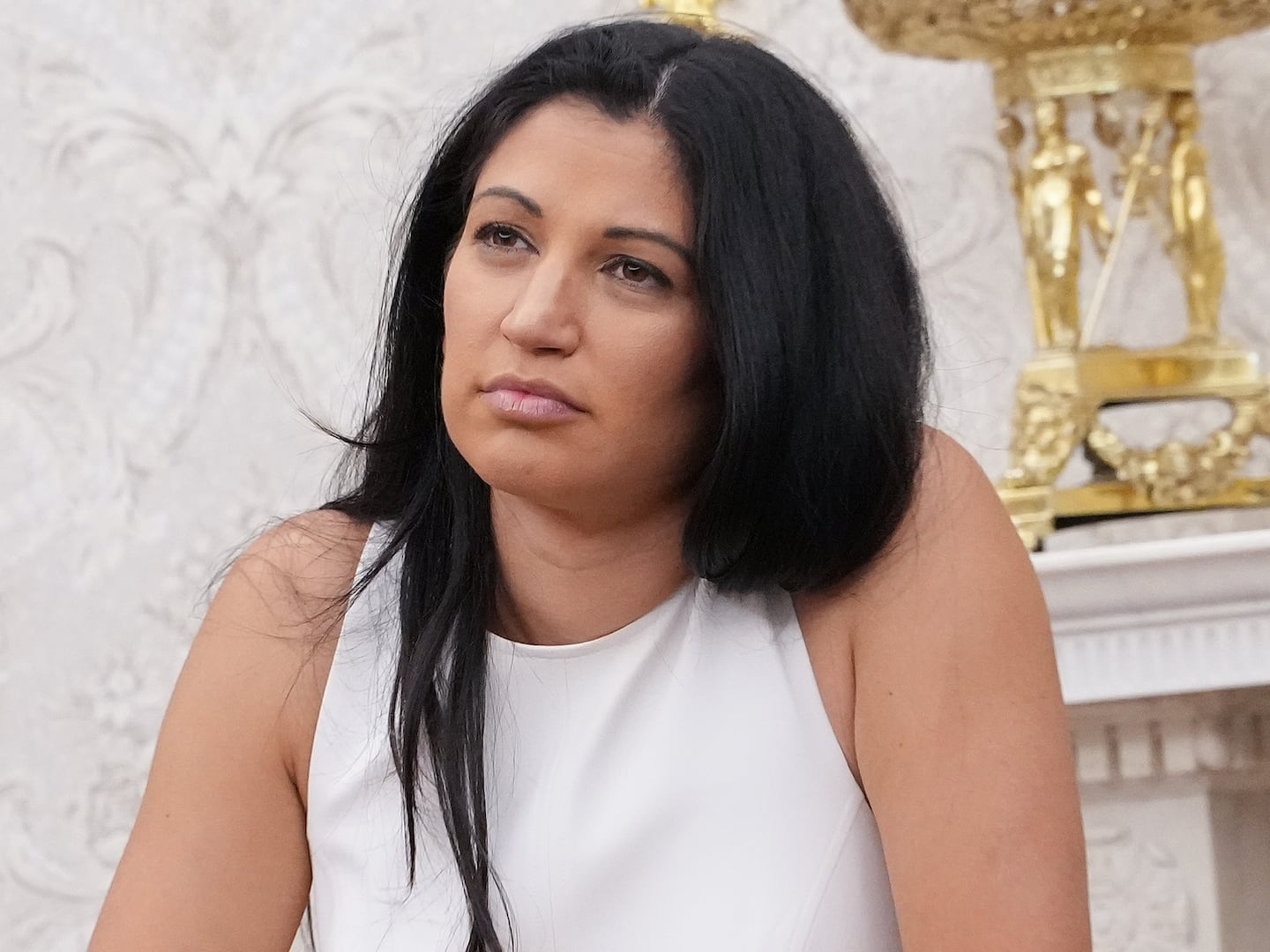GROSSETO, Italy — A defiant and sometimes emotional Franceso Schettino took the stand for the first time in his manslaughter trial on Tuesday. The erstwhile captain of the cruise ship Costa Concordia is facing up to 23 years in prison on multiple manslaughter charges, causing a maritime disaster and abandoning ship after crashing the ship with more than 4,000 passengers and crew aboard into rocks off the island of Giglio on January 13, 2012, killing 32 people.
The giant cruise ship, more than twice as big as the Titanic, was uprighted in a landmark maritime salvage maneuver in September 2013 and towed to Genoa to be scrapped six months later. The last body finally was recovered from the bowels of the ship in October.
Schettino’s testimony marks the end of the prosecution’s case and the beginning of his somewhat challenging defense. Five of his colleagues who work for Costa Cruiseline, including several officers under his command at the time of the accident, successfully reached plea bargains last year. They admitted culpability and pleaded guilty to manslaughter in exchange for minimal fines and light sentences that have been suspended. All of their testimony has been accepted by the court, and most of it casts blame squarely on their captain.
Schettino also tried to enter a plea bargain agreement, which ultimately was rejected by the Grosseto court. In an interview with The Daily Beast in March, Schettino said, “Since the beginning, they have searched for a way to put all the blame on me, saying the captain went crazy for a moment, [so as] not to forfeit the insurance money,” he said. “It didn’t take long to figure out that it would all be better if the responsibility rested with just one person rather than the whole company.”
The court case is being heard in Grosseto’s Teatro Moderno to accommodate the large number of passengers and other civil parties in the case. The lawyers and court attendees sit in red velvet chairs and the judges have set up a makeshift bench on the theater’s stage. Perhaps fittingly, Schettino’s testimony often seems like a theatrical performance. At times it looks like he is giving a demonstration in Italian hand gestures, gesticulating wildly as if he were leading the theater orchestra in the cordoned off pit below the stage. He frequently slips into Neapolitan dialect so thick that is incomprehensible. “I apologize for my speech,” he told the court at one point. “I am mother-tongue Neapolitan.”
It would seem that Schettino has little chance to escape a conviction. He was the commander of the ship when it crashed and he admits his decision to take the ship off course. On Tuesday the court heard an audiotape extracted from the ship’s black box in which the captain clearly orders the helmsman to take the ship off it’s approved route. The voice recording was played over a film of an eerie dark radar map with yellow subtitles showing the ship make its final, fatal voyage. When the ship hit the rocks, the sound of bells ringing and alarms sounding echoed in the theater. When it ended, Schettino put his head in his hands. Prosecutor Alessandro Leopizzi wasted no time in repeating the transcript to ask Schettino to confirm his words. “But where did we touch?” he can be heard asking his officers. “Oh dear God,” an unidentified voice was heard saying. Then the radar and audio went dead.
Schettino explained that he had gone by Giglio to give a maritime salute to a former Costa captain, Mario Palombo, who, he thought, was on the island at the time. He told the court he called the retired captain to see exactly where he lived so he knew when to sound the cruise ship horn. Palombo, who was on the mainland at the time, told him to move on. Then Schettino can be heard asking the retired captain how deep the water on the island’s edge was. When the prosecutor asked him why he asked the captain about the water’s depth, he said, “When he wasn’t home, I asked him instead about how deep the water was near the island to be courteous.”
Tuesday’s hearing was clearly damaging to the captain, but it also cast a light on the chaos that seems to be par for the course in cruise ship management. At one point Schettino admitted that bringing passengers up to the bridge was a common occurrence. “I said there couldn’t be more than 12 people at a time,” Schettino told the court. “And they would bring 20, 30, 70 ….”
Schettino’s testimony also reflected poorly on the Costa cruise company with the implication that the Concordia crew did not exactly run a tight ship. The chain of command clearly had a series of broken links. For one, it seemed that Schettino’s Indonesian helmsman, Jacob Rusli Bin, didn’t clearly understand the captain’s Italian or English. When Schettino commanded him to turn the ship, he can be heard repeating errant commands. Schettino told the court that it wasn’t his fault the helmsman misunderstood. “I made a decision to go off course and I gave those orders to the helmsman,” he told the court. “I’m not trying to blame anyone. I’m just trying to explain the circumstances.”
Shortly before the Concordia crashed, Schettino can be heard on the audiotape telling the helmsman to turn again. “Otherwise, we go on the rocks,” he can be heard saying in English. He told the court that he was initially being ironic. “A few minutes later I was told the danger we were in.”
Schettino’s testimony is expected to carry on Wednesday when he will be quizzed about the evacuation process and be called on to explain why he waited more than an hour between impact and calling to abandon ship. He will then be questioned by dozens of lawyers representing passengers and crewmembers. He will also likely be questioned by the lawyer for Domnica Cemortan. She’s the Moldovan dancer who was Schettino’s guest on the cruise, and who reluctantly admitted having a sexual relationship with the captain. During a court break Schettino told The Daily Beast he thought things were going well. “I have waited for this day for a long time,” he said. “I can’t undo the facts, but I can try to explain them.” A verdict is expected in early 2015.






